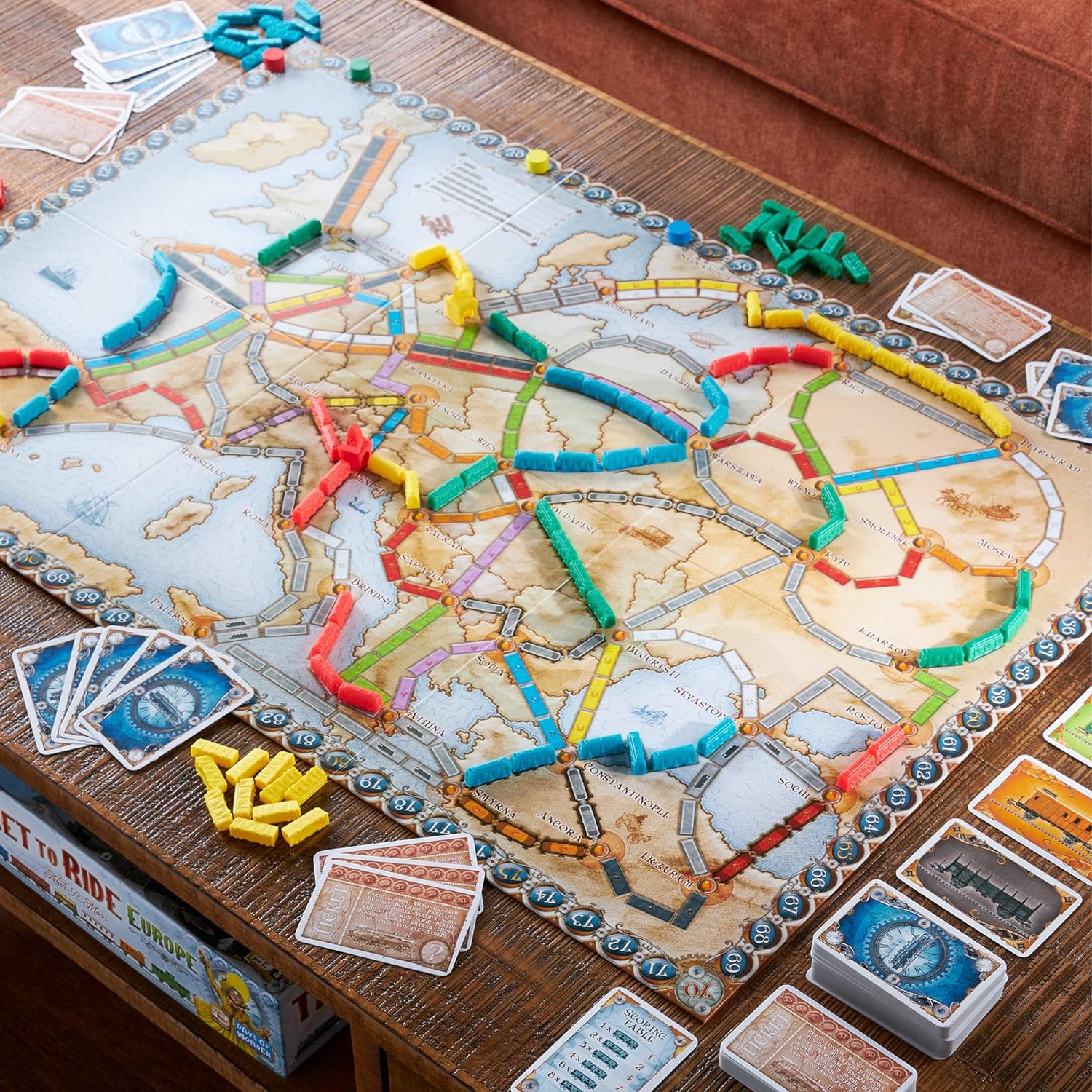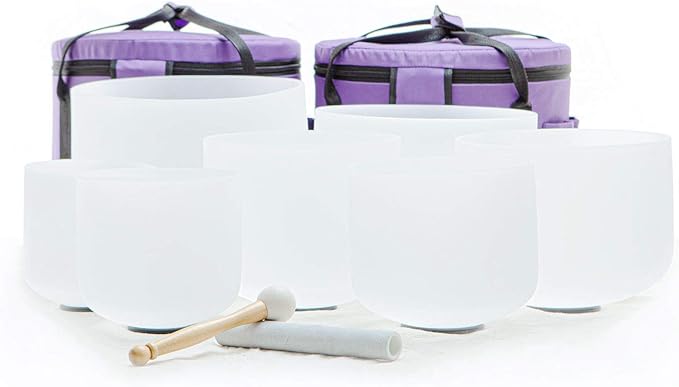When exploring fun educational board games for kids homeschooling, Ticket to Ride Europe proves it is a valuable educational tool. When homeschooling, finding engaging and educational resources is a never-ending quest, albeit a fun one, for parents. Among the many options available, board games often stand out as exceptional tools for learning. Ticket to Ride Europe appears not only as a thrilling game of strategy and adventure but also as an invaluable asset in the homeschooling arena across various subject areas. Therefore creating a wonderful opportunity for children to become familiar with concepts in Geography, History, Mathematics, Strategy, Critical Thinking, English, Design and Technology, and Visual Arts. There is also the possible use of Digital Technologies to extend the learning material you might design from this game. And elements of Science can be brought into it too.
What Does Ticket to Ride: Europe Bring to the Educational Table?
I wrote an article/review on the game to give people an idea of what the game is all about. Ticket to Ride Europe, designed by Alan R. Moon, is set in the golden age of train travel across Europe at the Turn of the Century. The game players, as the primary objective, embark on a journey to connect railway routes between cities across the continent of Europe and be the first to complete a long journey.
Sparks Interest into the Times of the Turn of the Century
Simply do a Google search for “What was the world like at the turn of the Century?” and you will find information about the political landscape, industrial and economic transformation, cultural and intellectual growth and the arts, literature and science became more prominent, social changes, technological and communication revolution and transportation developments.

Geography
Geography takes center stage as players navigate the European landscapes. Each destination card introduces players to iconic landmarks and cities. As players strategize their routes, they gain a general understanding of European geography, fostering spatial awareness and map-reading skills—an essential component of any comprehensive curriculum. Players will develop a sense of where the cities and countries are on the board and associate it will real life.
Digital Technologies
Digital Technologies, incorporating English comprehension and reading skills can enter here again if you like. Players can imagine traveling from the bustling streets of London to the serene canals of Venice, and anywhere in between and around the board across Europe. There is plenty of research that can accompany a game either during the game play or afterwards as you look on the internet to find out about each place traveled to. You could create an entire unit covering the Historical and Social aspects of each city mentioned on the board. Or choose a single city or country to focus on and do a deep dive into it. You will no doubt find much that will cover all subject areas that is generally expected as part of a curriculum.
History
History unfolds with each turn as players trace the evolution of Europe’s railway network. Through the game’s historical context, and through your researching of the cities, players become aware of the profound impact of railways on European civilization, from facilitating trade and commerce to shaping cultural exchange and urban development. Ticket to Ride: Europe serves as a gateway to exploring the richness of European history, sparking curiosity and igniting a passion for learning.

Mathematics
Mathematics becomes a reality as players work out distances, plan their routes, and manage their resources. From tallying points to optimizing train placements, the game assists mathematical proficiency in an interactive setting. Through strategic decision-making and resource allocation, players improve their mathematical skills while using their critical thinking and problem-solving abilities—which is a cornerstone of academic success.
Languages and Life Skills
Further to it’s academic virtues, Ticket to Ride: Europe sees players gaining essential life skills, including communication, collaboration, and sportsmanship, vital to a child’s growth and ability to function in the real world. As players negotiate routes and contend for railway supremacy, they are introduced to learning the art of diplomacy and compromise—an invaluable asset in navigating real-world interactions. Through shared victories and defeats, players gain resilience and empathy, a sense of community and camaraderie. You can also extend work into the subject area of Languages due to the fact that the game spans many countries across Europe, all speaking different languages. As an extension to the learning possibilities, why not explore a language from one of those countries by leaning a new language completely, or perhaps looking into key phrases for use as a tourist etc.?
Visual Arts/Design and Technology
Visual Arts and Design and Technology can also be discussed here. Ticket to Ride Europe is visually appealing in it’s simplistic colour scheme reminiscent of an old style map. The colours of the train cards are vibrant and the Destination tickets are highly detailed. The construction of the game board and train cars can be incorporated into a learning experience through discussion and exploration of the materials used and a project in making a game and game board themselves as an extension of this theme. I also see an opportunity to liven things up a bit by bringing art from the countries on the board game and using them as a point of interest to study, such as the ancient statues and architecture of Greece as an example.

Science
While Ticket to Ride: Europe may not delve deeply into scientific concepts, its gameplay offers opportunities for players to encounter and explore scientific principles. The construction and operation of railway networks involve engineering and technology concepts such as construction and infrastructure, which is engineering and technology. The environmental impacts of building the railway could become the basis for a good discussion on the acquisition of the building materials, pollution, land clearing, habitat destruction and sustainability. Lastly a reflection on the energy efficiency of trains and/or transportation over the years could be a great educational addition.
Generational Fun
Ticket to Ride: Europe crosses generational boundaries, and provides a wonderful experience for players of all ages. Whether enjoyed as a family bonding activity or incorporated into structured lesson plans, the game brings meaningful interactions and shared learning experiences. When your game is fun for all the family, you’re onto a winner. I believe it also has added value in giving families ideas for holidays and vacations, which could lead into a whole new area of learning if you want to take it to a different level. We are planning a trip to Greece at some stage in the future, so having conversations about Greece and seeing ways to travel in and around it are helpful to children to get an idea of the scope of the area and the location in relation to where they live.
In Closing
As far as fun educational board games for kids homeschooling, Ticket to Ride: Europe stands out as an excellent contribution. As you can see, there is a vast opportunity to cover all of the subjects of the curriculum. With its immersive gameplay and multidimensional approach to learning, the game inspires curiosity, fosters encourages creativity, and promotes a lifelong love of exploration and discovery. I hope I have given you some ideas on how to expand a simple game into an amazing educational resource. As a cornerstone of homeschool curriculums worldwide, Ticket to Ride: Europe has the potential to shape young minds into the leaders of tomorrow.
Thank you for reading and I wish you all the best in your homeschooling journey. If you have any questions you can leave a comment below or reach me on my dedicated Facebook page.
Warm Wishes
Ange




